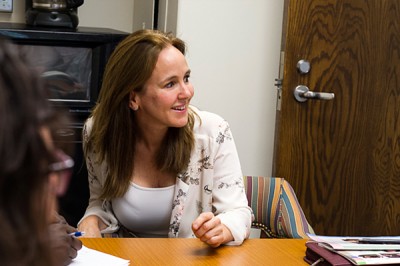Is the power of parent talk enough to close the school readiness divide?
CHICAGO — As a mother, pediatric surgeon Dana Suskind understands the gravity of her responsibility when a parent entrusts her to cut open a baby’s head. She does so, as part of a delicate, two-hour operation, to attach a cochlear implant to a deaf or hearing-impaired child’s inner ear. She does not consider an operation successful if it results merely in a child being able to hear. Success means that, with the assistance of the implant and follow-up support, the child learns to talk.
Six years ago, the petite, auburn-haired doctor noticed a disturbing trend among her patients at the University of Chicago Medicine: While children from affluent families were starting to speak after implant surgery, those from low-income families lagged behind.
Why? The question ate at Suskind, who co-founded the hospital’s cochlear implant unit in 2006. She believes she discovered her answer in research by child psychologists Betty Hart and Todd R. Risley. Their landmark study in the 1990s found that a child born into poverty hears 30 million fewer words by age 3 than a child born to well-off parents, creating a gap in literacy preparation with implications for a lifetime.
Dana Suskind (Photo: Kim Palmer)
The gap was obvious and stark for Suskind’s patients. Since the implications of her experience extended to all children, hearing and deaf alike, she felt compelled to find practical solutions for all


